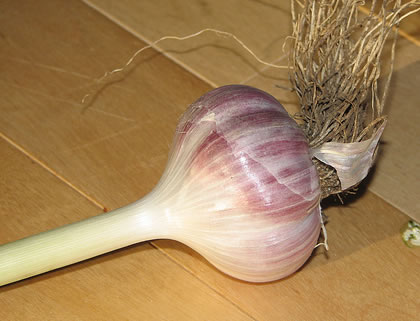Antibiotic resistant strains of bacteria are on the rise. With each new antibiotic developed out there, a stronger and more resistant bacteria develops to counter its effects. This fact begs the question: what will kill THE super-bug, the ONE that no laboratory made antibiotic can do away with? Can that actually happen?
Can the medical community one day simply not be able to make an antibiotic powerful enough to kill a super-resistant strain of bacteria?
As of September 2010, hospitals in 20 states of the U.S. are reporting drug-resistant infections which are spreading to other parts of the world according to USA Today.
The facts are in: antibiotics are not a lifetime guarantee of safety. In fact, they seem to work for a while, but end up giving the advantage to the bacteria, which mutate to meet the challenge, becoming stronger, more resistant, and more deadly.
Garlic Can Fight THE Superbug
Unlike laboratory-developed antibiotics, garlic works as a natural antibiotic, to which bacteria do NOT develop a resistance through mutation, or antibodies to make them stronger. Although for centuries past it was used as a natural antibiotic, with the advent of laboratory antibiotics, garlic was put on the shelf and forgotten by medical researchers and practitioners. It is now being reviewed anew and is slowly making a triumphant come back; this after it was found to be more potent than penicillin against strep throat infections and other antibiotic-resistant organisms. It was found to not only kill the harder to kill super-bugs, but markedly boost the immune system’s ability to fight a myriad of infectious diseases, bacterial as well as viral.
An Age Old Solution
Garlic’s antibiotic properties were known to the likes of Louis Pasteur, who, in 1858 experimented with the garlic bulb and proved its antibacterial qualities. Another scientist, Dr. Artturi Virtanen, a Nobel Prize winner for chemistry, proved garlic’s prolonged action against dysentery and typhus, as well as other infections caused by streptococcus and staphylococcus.
Nobel prize winner, Arthur Stoll, also came to the same conclusions about garlic’s amazing antibiotic powers. What is even more remarkable is that garlic only kills the harmful bacteria, and normally preserves the beneficial bacteria! This is not the case with conventional antibiotics, which destroy the precious intestinal flora.
All That and Some!
Garlic protects the body against numerous infections by not only attacking the culprit microorganisms, inhibiting their growth and proliferation, but by actually strengthening the immune system. Garlic increases the number of disease fighting components of the immune system called lymphocytes, phagocytes, and natural killer T-cells. These specialized immune system cells are enhanced by garlic to do their job. Preliminary studies have even found that garlic may help combat HIV and AIDS-related opportunistic infections.
